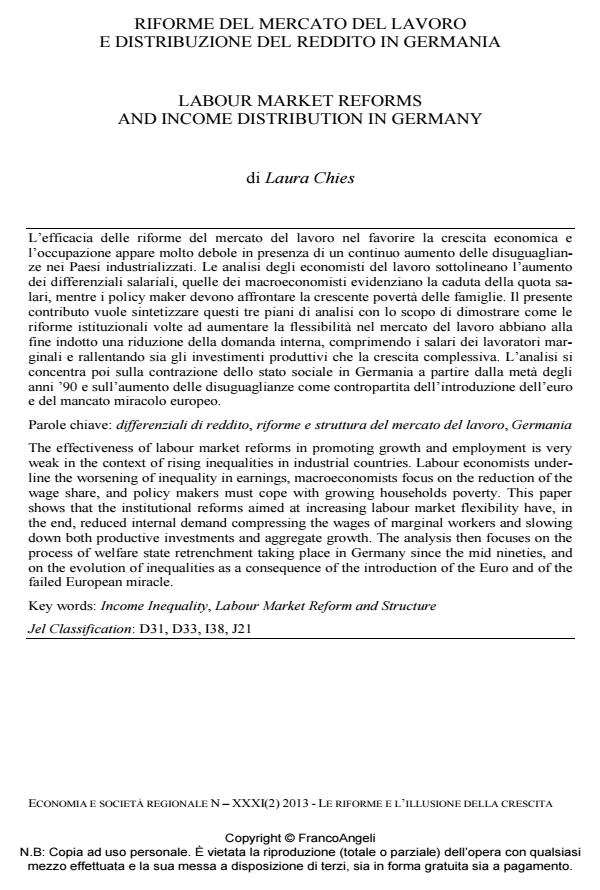Labour market reforms and income distribution in Germany
Journal title ECONOMIA E SOCIETÀ REGIONALE
Author/s Laura Chies
Publishing Year 2013 Issue 2013/2
Language Italian Pages 23 P. 42-64 File size 814 KB
DOI 10.3280/ES2013-002003
DOI is like a bar code for intellectual property: to have more infomation
click here
Below, you can see the article first page
If you want to buy this article in PDF format, you can do it, following the instructions to buy download credits

FrancoAngeli is member of Publishers International Linking Association, Inc (PILA), a not-for-profit association which run the CrossRef service enabling links to and from online scholarly content.
The effectiveness of labour market reforms in promoting growth and employment is very weak in the context of rising inequalities in industrial countries. Labour economists underline the worsening of inequality in earnings, macroeconomists focus on the reduction of the wage share, and policy makers must cope with growing households poverty. This paper shows that the institutional reforms aimed at increasing labour market flexibility have, in the end, reduced internal demand compressing the wages of marginal workers and slowing down both productive investments and aggregate growth. The analysis then focuses on the process of welfare state retrenchment taking place in Germany since the mid nineties, and on the evolution of inequalities as a consequence of the introduction of the Euro and of the failed European miracle.
Keywords: Income Inequality, Labour Market Reform and Structure
Laura Chies, Riforme del mercato del lavoro e distribuzione del reddito in Germania in "ECONOMIA E SOCIETÀ REGIONALE " 2/2013, pp 42-64, DOI: 10.3280/ES2013-002003